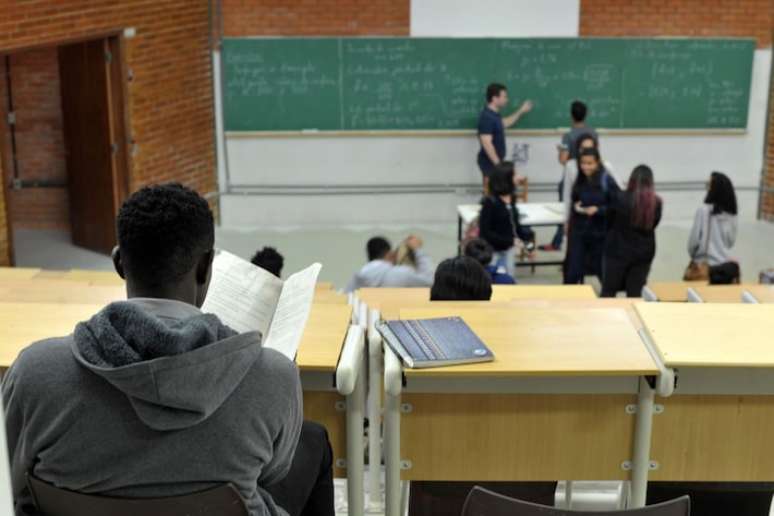The movement indicates an improvement in the labor market, but not yet enough to put pressure on wages
RIO – In addition to growth in job creation Work with a formal contract, the labor market began the year with a significant progress in opening vacancies for professionals with higher education, according to a study by the Brazilian Institute of Economics Getulio Vargas Foundation (Ibre/FGV) obtained exclusively from Station/Broadcast.
Amid the growth in employment, the balance of hiring of people with full degree it exceeded the result of the same period last year by more than five times. However, salaries are lower.
In the group of employees with a completed high school education or higher, the balance of formal jobs grew from 3,135 in January 2023 to 16,879 in January 2024, a jump of 438.4%. In terms of volume, the global balance of 180,395 thousand vacancies was driven primarily by hiring people with completed secondary education or incomplete higher education, a group whose vacancy balance increased from 61,689 in January 2023 to 118,517 positions in January 2024, an increase of 92.1%.
The Ibre/FGV study collects data from New General Register of employed and unemployed people (Nuova Gabbia)of the Ministry of Labor.
“This is beneficial for our economy. Because, from the workers’ point of view, we manage to generate better quality jobs, which guarantee greater security in terms of rights. They have their rights guaranteed by the CLT. And when we look at the composition , the situation is a little better than in the past, with more workers with a completed higher education degree, who are generally higher productivity workers, because they tend to have very specific skills, due to their training.” , on average, tend to earn more than workers with a lower level of education. So, increasing these workers with a higher level of education can improve both the composition of our workforce in the formal segment, and also have a slight impact on wages”, summarized Janaína Feijó, researcher in the area of Applied Economics at Ibre/ FGV.
Better-paying jobs tend to increase the average income earned from work in the country. When looking at wages by level of education, the income of workers with a completed high school education was, on average, more than double the wages of other levels of education, both among those admitted and those fired.
However, the average entry salary for this category with higher education, which was R$4,257 in January 2024, was the only one to record a decrease compared to January 2023, when it was R$4,335, a decrease of 1.8%.
Among those made redundant, workers with higher education qualifications were also the only ones who bucked the trend compared to the previous year: the average salary remained practically stable, with a slight increase of just 0.1%, going from R$4,508 in 2018. January 2023 to R$4,512 in January 2024.
According to Feijó, the movement signals that the job market continues to improve, especially in these more productive vacancies, but has not yet heated up to the point of putting pressure on the wages of these workers.
“Probably the vacancies that are emerging do not pay as well as vacancies for the same training in the past,” Feijó said. “It could be a temporary thing.”
The researcher underlines, however, that she does not expect such positive results to be maintained in future releases of Caged. The February data will be released this Wednesday, the 27th, by the Ministry of Labor.
“This good performance in January will probably not continue in the coming months. We have several macroeconomic problems and dilemmas to resolve, the tax issue, we still have a very stable scenario for the business sector. All this could occur and compromise the good performance in January” , Feijó had predicted.
In January, 180,395 new jobs with formal contracts were opened in the country, with an increase of 100.4% compared to the result of January 2023. Financial market analysts consulted by Projeções Broadcast estimate an average balance of 232.5 thousand new jobs of work in February 2023. 2024, thanks to positive seasonal influences. The trend, however, is for the pace of hiring to decline during 2024, says researcher FGV.
“The labor market tends to move in conjunction with the macroeconomic scenario. When we observe that the economy is slowing down, this will be felt in some way in the labor market,” Feijó explained.
Source: Terra
Ashley is a professional author and journalist, working at 247 News Update. She writes on various topics from economy news to general interest pieces, providing readers with relevant and informative content. She brings a unique perspective and in-depth analysis to her work.



